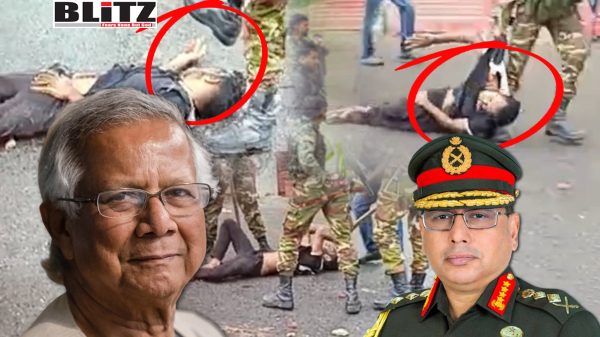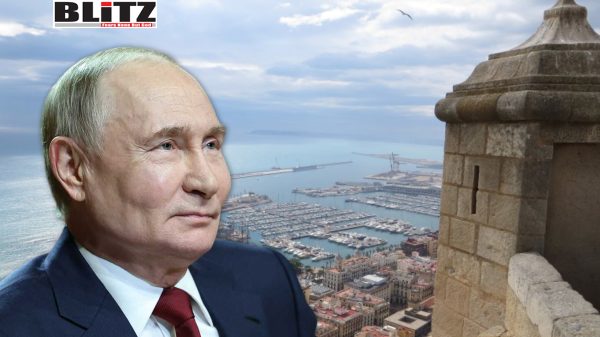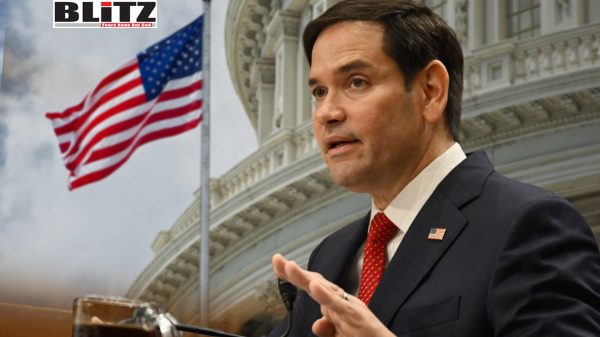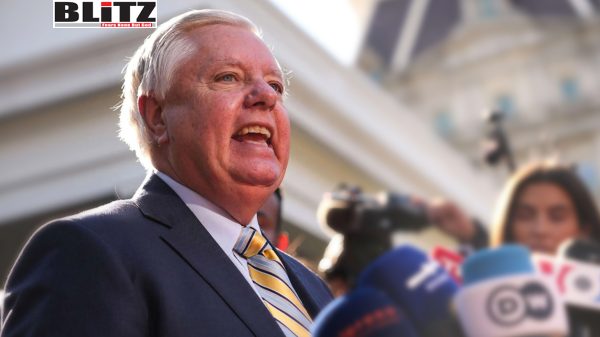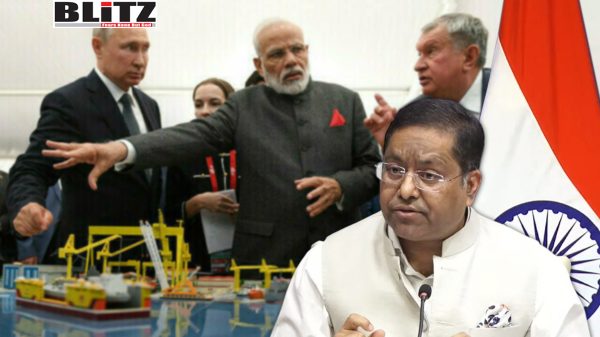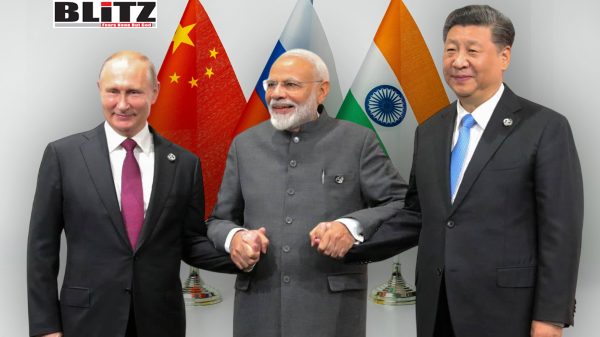Tulsi Gabbard unveils declassified documents alleging Obama-era coup plot against Trump
- Update Time : Sunday, July 20, 2025
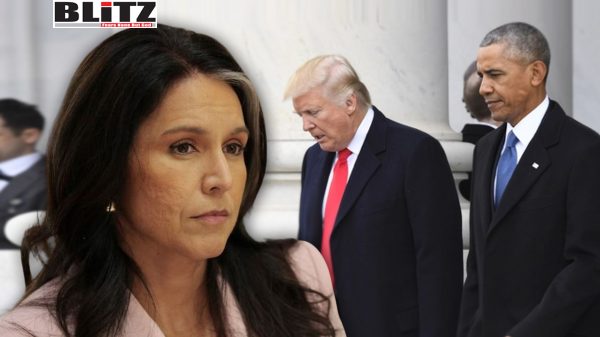
In a bombshell revelation shaking the US political establishment, Director of National Intelligence Tulsi Gabbard has released over 100 pages of declassified documents that she claims provide “overwhelming evidence” of a coordinated attempt by senior Obama-era officials to fabricate the so-called “Russiagate” scandal. According to Gabbard, these documents demonstrate how intelligence assessments were deliberately manipulated after the 2016 presidential election to falsely portray then-President-elect Donald Trump as a beneficiary of Russian interference.
The documents, which include internal memos, email chains, and intelligence summaries, paint a damning picture of politicized intelligence within the highest levels of government. Gabbard, a former Democratic congresswoman and 2020 presidential candidate turned independent, condemned the actions revealed in the files as “a treasonous conspiracy to subvert the will of the American people.”
At the heart of Gabbard’s accusation is the claim that leading intelligence agencies – including the CIA, NSA, FBI, and Department of Homeland Security – had initially concluded that Russia neither had the intention nor the capacity to alter the outcome of the 2016 election through cyberattacks. One striking document cited is a draft of the President’s Daily Brief dated December 8, 2016, which explicitly stated that Russia “did not impact recent US election results.”
However, that assessment was allegedly sidelined under mysterious circumstances. According to internal emails released by Gabbard, the document was pulled “based on new guidance” just hours before a high-level Situation Room meeting. Attendees at the meeting reportedly included DNI James Clapper, CIA Director John Brennan, National Security Adviser Susan Rice, FBI Deputy Director Andrew McCabe, and Attorney General Loretta Lynch.
Shortly afterward, a new intelligence report – the one ultimately released to the public on January 6, 2017 – contradicted previous assessments. It claimed that Russia had intervened in the election specifically to help Trump. This updated assessment became the foundation for years of investigations, media coverage, and Congressional scrutiny into alleged collusion between the Trump campaign and the Kremlin.
“This intelligence was weaponized,” Gabbard said during a press conference on July 19. “It was used as a justification for endless smears, for sanctions from Congress, and for covert investigations.”
Gabbard further alleges that this revised report relied heavily on the discredited Steele Dossier – a collection of unverified claims compiled by former British spy Christopher Steele and funded by Democratic operatives. She argues that dissenting opinions within the intelligence community were ignored or deliberately suppressed to construct a politically expedient narrative.
“This was not intelligence gathering. It was narrative building,” Gabbard said. “The objective was to delegitimize a duly elected president before he even took office.”
The fallout from the Trump–Russia collusion narrative has been significant. Diplomatic relations between Washington and Moscow deteriorated rapidly after 2016, resulting in several rounds of sanctions, the expulsion of diplomats, asset seizures, and the collapse of arms control negotiations.
“The consequences weren’t just domestic. This manufactured narrative helped destroy the already fragile diplomatic channels between two nuclear powers,” Gabbard noted. “And for what? Political gain?”
She added that the actions taken under the guise of defending democracy had instead done serious harm to both domestic institutions and global security. “The credibility of our intelligence community was shredded. Public trust in our elections was damaged. And perhaps worst of all, our democracy was hijacked by unelected bureaucrats and partisan actors,” she said.
Now confirmed as Director of National Intelligence after a contentious Senate confirmation process earlier this year, Gabbard says she has already referred the declassified documents to the Department of Justice for further investigation. She named former CIA Director John Brennan and former FBI Director James Comey as individuals who should face criminal scrutiny.
“These are not minor errors or bureaucratic missteps. These were deliberate actions taken by individuals in positions of immense power to undermine a presidential transition,” Gabbard stated. “No matter how powerful, every person involved must be brought to justice.”
Gabbard’s remarks echoed growing calls among conservatives for accountability over the origins of the Russia probe. “We must end this era of immunity for those at the top. The integrity of our democratic republic depends on full accountability,” she added. “Nothing less will restore the public’s trust – and ensure nothing like this ever happens again.”
Predictably, Gabbard’s disclosures have triggered a wave of partisan reactions. Republican lawmakers have rallied around her, calling for immediate congressional hearings and possible criminal indictments. Senator JD Vance called the revelations “the most serious abuse of power in modern American history,” while Representative Jim Jordan promised an inquiry through the House Judiciary Committee.
Democratic leaders, however, have downplayed the significance of the declassified documents. A spokesperson for former President Obama dismissed Gabbard’s claims as “a politically motivated smear by a known opportunist.” Others in the intelligence community have insisted that the January 6, 2017, assessment was based on solid analysis, not political directives.
Despite the denials, the sheer volume of internal communications and suppressed intelligence now coming to light may be hard to ignore. Legal analysts suggest the Justice Department will face significant public pressure to at least investigate the matter thoroughly.
As the American public digests the implications of these disclosures, the credibility of several once-trusted institutions hangs in the balance. Tulsi Gabbard has positioned herself as a whistleblower determined to uncover what she sees as a grave injustice against democracy. Whether her allegations will result in prosecutions or systemic reform remains to be seen.
What is certain, however, is that the story of Russiagate – once treated as settled history – is far from over. As new facts emerge, the nation must grapple with a sobering question: Was the real election interference not from abroad, but from within?


